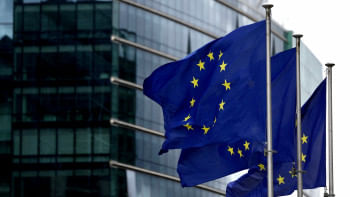Five strategies for garment exporters to navigate geopolitical risks

Geopolitical tensions are on the rise in apparel sourcing hubs, with major implications for Bangladesh. For instance, the trend of "friendshoring," whereby apparel manufacturing and sourcing shift to countries that are geopolitical allies, is coming under scrutiny due to increasing political tensions. A recent report produced earlier this year, by risk intelligence firm Verisk Maplecroft, underlines that.
Maplecroft looked at trends over five years across 40 emerging markets, including major manufacturing hubs like Bangladesh, Indonesia, Mexico, Thailand, and Turkey and assessed risks related to civil unrest, government instability, and exposure to conflict and terrorism. It suggests "civil unrest" as a "primary threat to manufacturing," with more than three-quarters of the assessed emerging markets experiencing an increase in civil unrest over the past five years. Alarmingly, Bangladesh ranks seventh highest on political risk related to civil unrest, according to the report.
While Bangladesh has established itself as the world's second-largest exporter of ready-made garments, protests for higher wages in 2023 resulted in at least four deaths and significant disruption to the apparel sector. This unrest has continued into 2024, despite the agreement on a new minimum wage, with reports of garment factories terminating workers who participated in the protests.
Bangladesh is not alone on these issues. The report details how other key apparel manufacturing hubs like Mexico, Turkey, Thailand, and Indonesia also face political risks.
So, what is driving this unrest? Economic inequality is identified as the primary driver of civil unrest, with global, regional and national issues contributing to instability. Maplecroft's report predicts that political risks in garment hubs are unlikely to decrease in 2024. This could have been the same in Bangladesh had we not been able to resolve issues related to the minimum wage increase.
There are other risk issues at play as well. Disruptions in crucial logistics routes, such as the Red Sea and Suez Canal, are posing further challenges to global apparel supply chains. Recent conflicts and attacks on cargo ships in these maritime routes have prompted companies like AP Moller-Maersk to suspend transits. This would potentially cause delays in stock delivery.
The report also raises concerns over the deepening divide between powerful nations, particularly the US and China. Sanctions and counter sanctions between these countries pose risks to global supply chains. Their actions are much more complex beyond numbers and are something which industry leaders in Bangladesh need to keep an eye on.
As apparel entrepreneurs seek to diversify their supply chains after the pandemic, the report emphasises the importance of tracking political risks and conducting "scenario analysis" to mitigate potential disruptions.
But how can garment manufacturers mitigate against geopolitical tensions in an ever-changing and uncertain world? How can they reduce their exposure to the impacts of trade disputes, political unrest, geopolitical dynamics and other developments which are beyond their control? I can suggest five effective strategies for Bangladeshi export-oriented manufacturing companies in this context.
First, geopolitical tensions can disrupt the flow of goods and raw materials, leading to supply chain bottlenecks and production delays as well as increased costs for raw materials. To counteract this risk, garment manufacturers or companies should diversify their supply chains across multiple regions and suppliers. By reducing dependence on a single source or location and conducting thorough risk assessments and developing contingency plans for alternative sourcing, businesses can minimise the impact of geopolitical disruptions.
A second tactic is to continuously monitor regulatory changes. Geopolitical dynamics often manifest in the form of regulatory shifts and trade policies including changes in tariffs, sanctions and export controls. Moreover, maintaining open channels of communication with government agencies and industry associations enables businesses to stay informed and proactively address compliance issues.
Third, in these unstable times, building strong-trustful relationships with customers, suppliers and local partners is crucial. Garment manufacturing export companies should prioritise long-term partnerships based on mutual respect, transparency, and shared values. By cultivating a network of trusted allies, businesses can navigate geopolitical uncertainties more effectively and leverage collective expertise to mitigate risks.
Fourth, on a practical level, political risk insurance (PRI) can provide financial protection against losses stemming from geopolitical events such as expropriation, political violence, and currency devaluation. Export-oriented manufacturing companies can secure comprehensive PRI coverage tailored to their specific operations and markets. Working with reputable insurers and leveraging PRI solutions can safeguard against potential disruptions and provide peace of mind in uncertain environments.
Finally, it stands to reason that an overreliance on a single market increases vulnerability to geopolitical shocks and economic downturns. To mitigate this risk, export-oriented manufacturing companies should diversify their market exposure across regions and customer segments. This will diversify revenue streams and reduce dependence on any single geopolitical entity. While this would demand stepping into unknown space by undertaking deeper research into any new market (economy), demography or consumers' behavioural pattern and preferences, an interested company should walk that uncharted path even making social or cultural investments in a new destination (society).
In my experience, these risks are just intrinsic to the global business landscape. As much as geopolitics may paralyse export-oriented manufacturers from Bangladesh, mere criticism won't help us. By undertaking pro-active or strategic steps like diversifying supply chains, monitoring regulatory changes, fostering partnerships, enhancing political risk insurance, and diversifying market exposure, I believe, Bangladeshi garment makers can navigate geopolitical uncertainties with foresight, resilience, and agility.
Mostafiz Uddin is the managing director of Denim Expert Limited. He is also the founder and CEO of Bangladesh Denim Expo and Bangladesh Apparel Exchange (BAE).
Views expressed in this article are the author's own.
Follow The Daily Star Opinion on Facebook for the latest opinions, commentaries and analyses by experts and professionals. To contribute your article or letter to The Daily Star Opinion, see our guidelines for submission.

 For all latest news, follow The Daily Star's Google News channel.
For all latest news, follow The Daily Star's Google News channel. 






Comments